13 Ways Dogs Respond When You’re Stressed
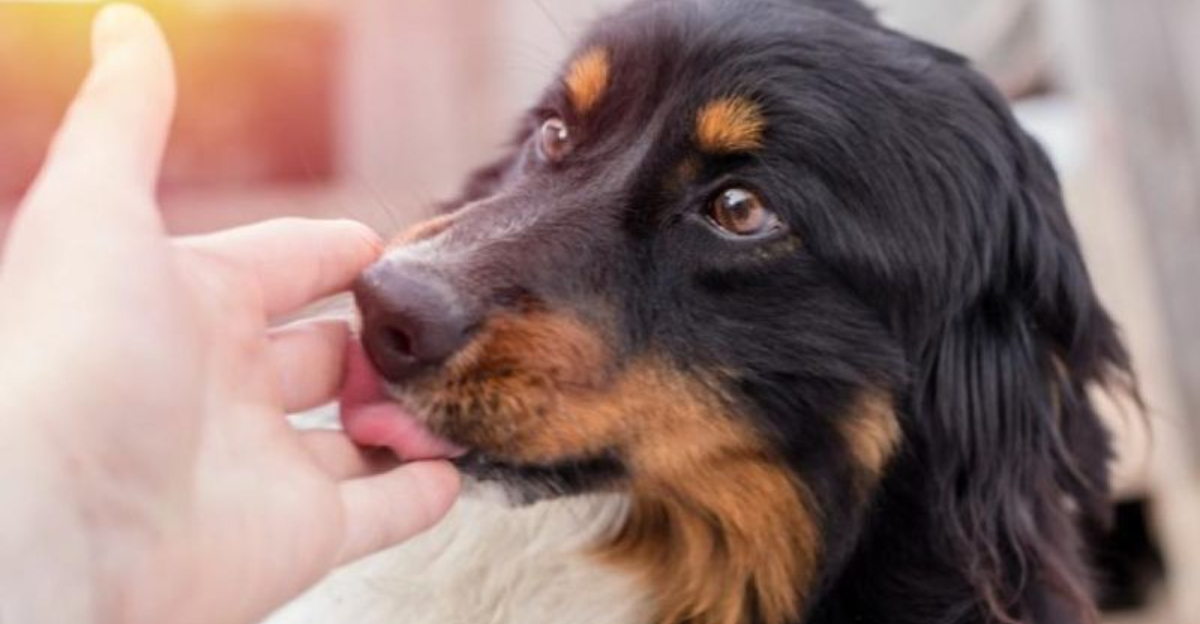
Have you ever noticed your furry friend acting differently when you’re having a tough day? Dogs are incredibly intuitive creatures that can pick up on our emotional states.
They’ve evolved alongside humans for thousands of years, developing an uncanny ability to sense our feelings. Let’s explore how our canine companions react when they detect we’re stressed out.
1. Dogs Can Sense Your Stress
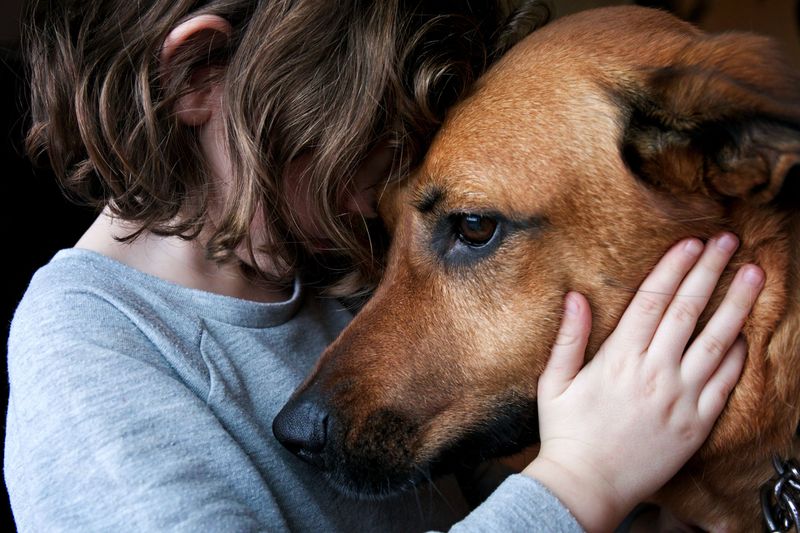
Your four-legged friend has a superpower—they can smell stress hormones like cortisol when they’re released in your sweat and breath. Their acute senses detect subtle changes in your posture, breathing, and movements.
When they notice these changes, many dogs will tilt their heads, prick up their ears, and watch you more intently than usual.
2. Seeking Comfort: Dogs Coming Close When You’re Anxious
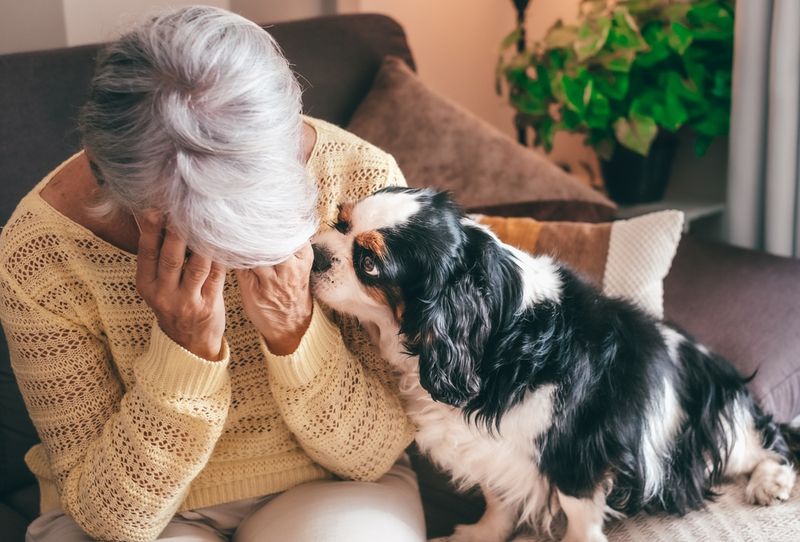
Notice your pup suddenly glued to your side during tough times? This isn’t coincidence. Dogs instinctively move closer to provide support when they sense distress.
They understand the power of presence, offering silent companionship that speaks volumes. This natural response helps strengthen your bond while providing mutual comfort.
3. Whining Or Barking For Attention
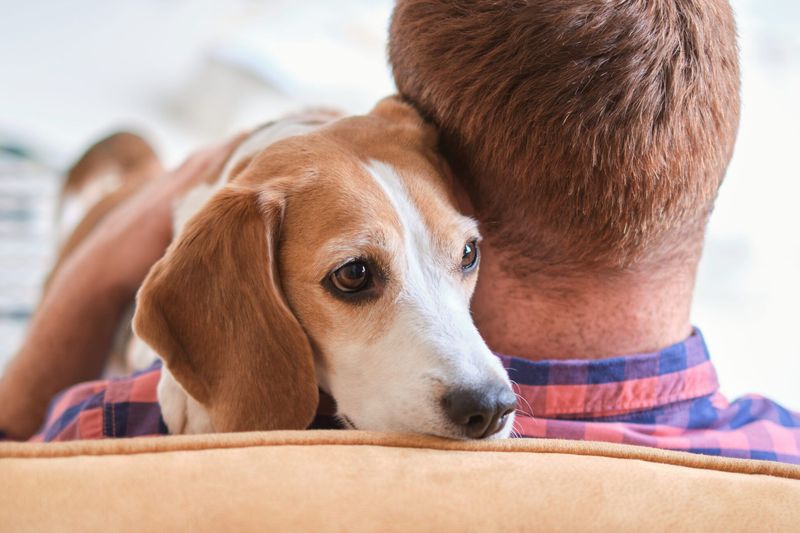
Ever had your dog suddenly become vocal when you’re feeling overwhelmed? That whining or barking isn’t random. Your furry friend is trying to redirect your attention away from whatever’s causing distress.
Sometimes they’ll even nudge your hand or paw at you. They’re essentially saying, “Hey, focus on me instead of your problems!”
4. Dogs Displaying Empathy
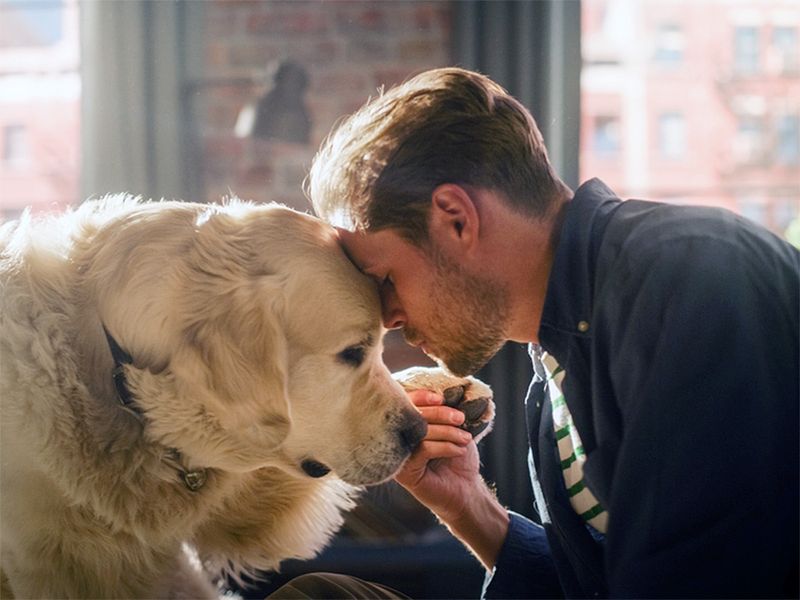
Research reveals dogs possess remarkable emotional intelligence. When you’re upset, your canine companion might place their head on your lap or gently press against your leg.
These aren’t random actions—they’re deliberate attempts to provide comfort. Some dogs will even mimic your sighs or match their breathing to yours, creating a synchronized emotional connection.
5. Dogs Offering Physical Touch
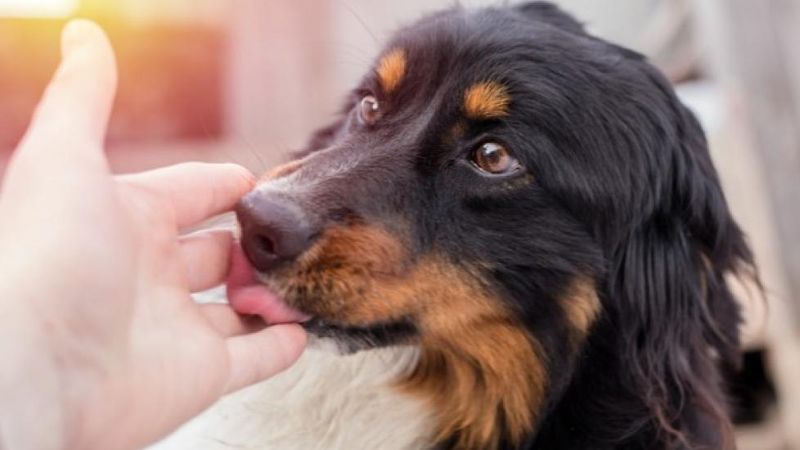
Those gentle licks on your hand aren’t just about affection—they’re therapeutic interventions! Physical contact from your dog releases oxytocin in both of you, the same bonding hormone mothers experience with babies.
Your pup might place a paw on you or nudge under your arm. These natural comfort techniques evolved specifically to strengthen your connection.
6. Changes In Behavior: Dogs Acting Restless
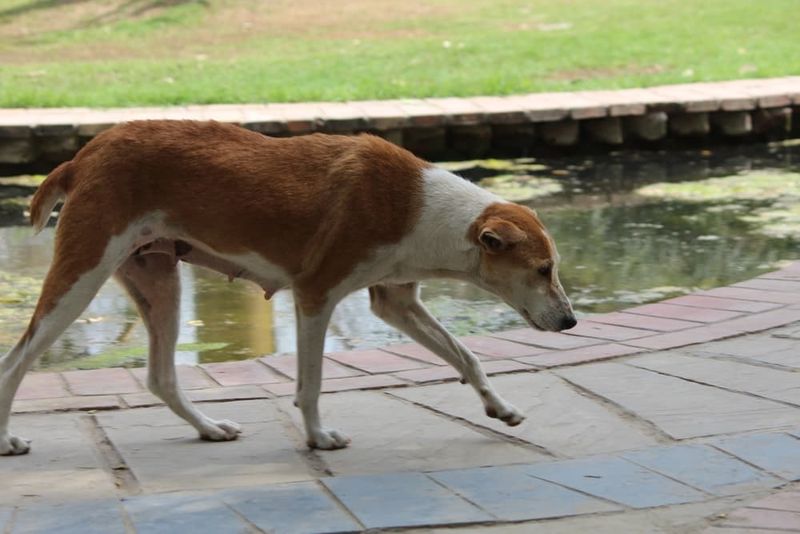
Your emotional state creates ripples in your dog’s behavior. When you’re stressed, your normally calm companion might suddenly pace around the room or seem unable to settle.
This mirroring happens because dogs are highly attuned to environmental energy. Your anxiety disrupts their sense of security, causing them to stay alert and vigilant until you calm down.
7. Dogs Trying To Cheer You Up
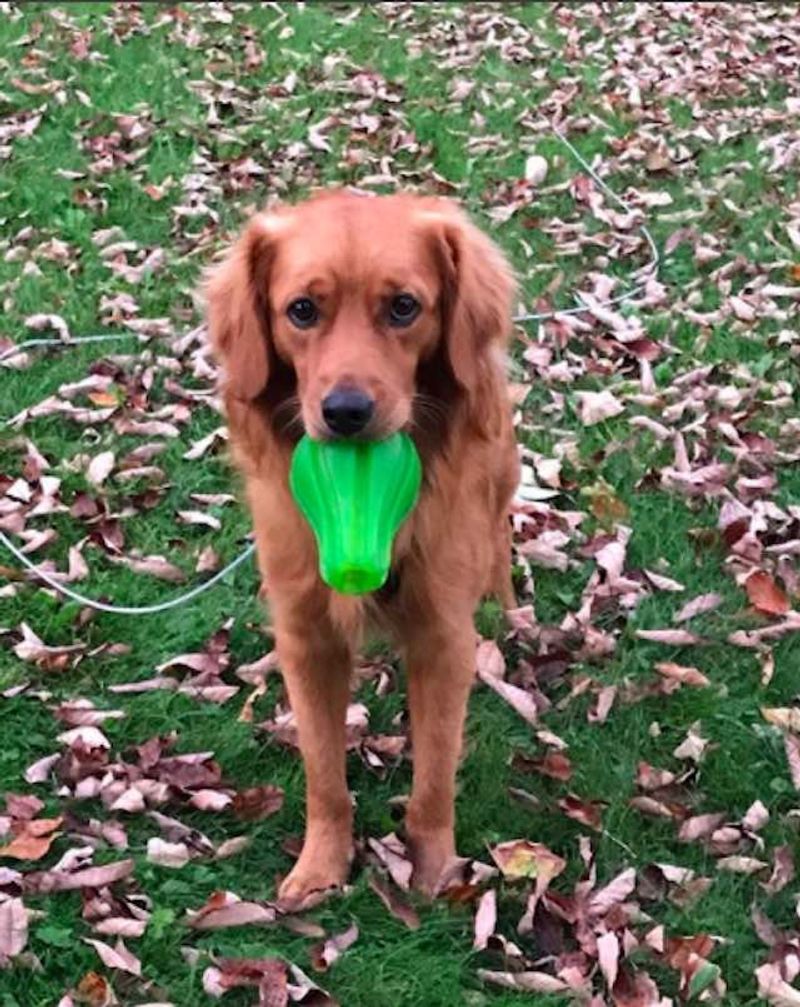
That slobbery tennis ball dropped in your lap during a crying session isn’t coincidental! Dogs often initiate play when they sense your distress, acting as furry emotional support therapists.
Some will perform their silliest tricks or bring favorite toys. This natural behavior serves two purposes: distracting you from negative feelings while strengthening your bond through shared joy.
8. Cuddling As A Stress-Reliever
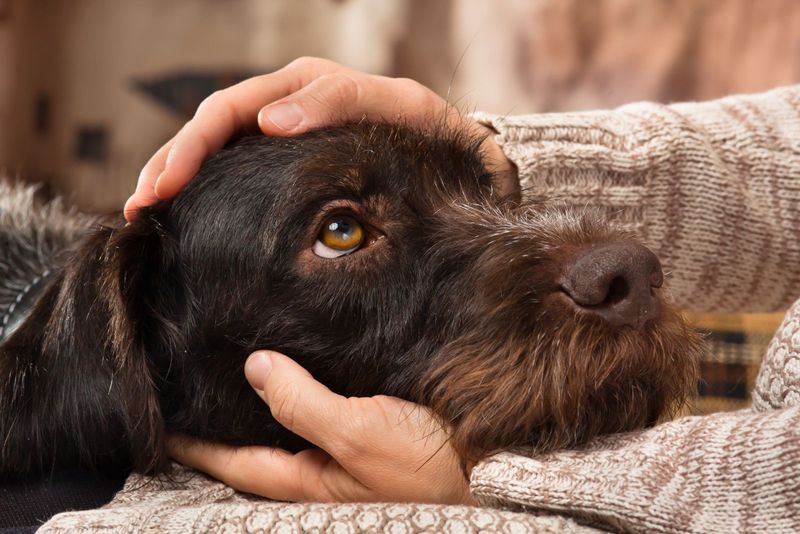
Feel your dog snuggling closer during tough times? There’s science behind this comfort! Your pup’s body warmth and rhythmic breathing naturally lower your blood pressure and heart rate.
Many dogs instinctively position themselves against your chest or stomach. This physical closeness creates a mutual calming effect, helping both of you regulate emotions through shared touch and presence.
9. Dogs Becoming Guarded Or Protective
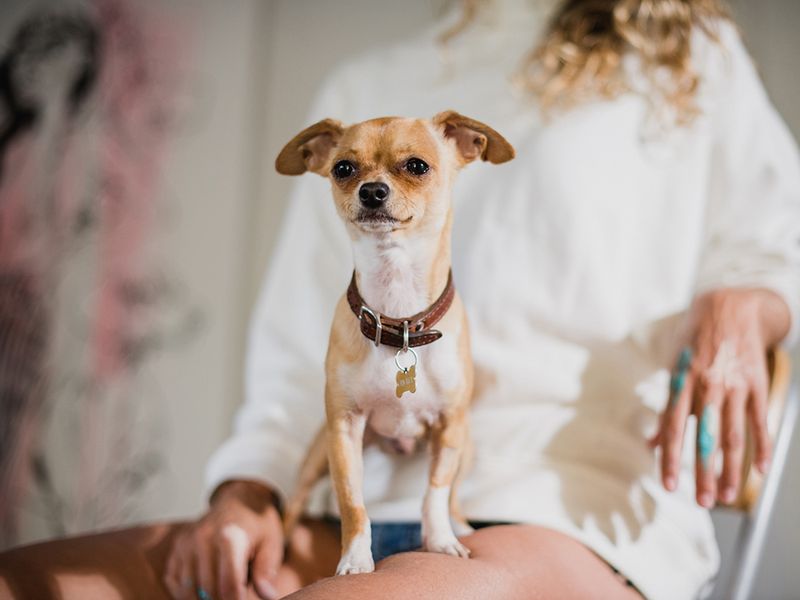
Some dogs channel their wolf ancestry when they sense your distress. Your furry friend might position themselves between you and the door or window, creating a protective barrier.
Watch for subtle signs like alert ears, intensified gaze, and a more rigid posture. This instinctive guarding behavior shows they’re ready to defend you when you seem vulnerable.
10. Dogs Responding To Your Tone Of Voice
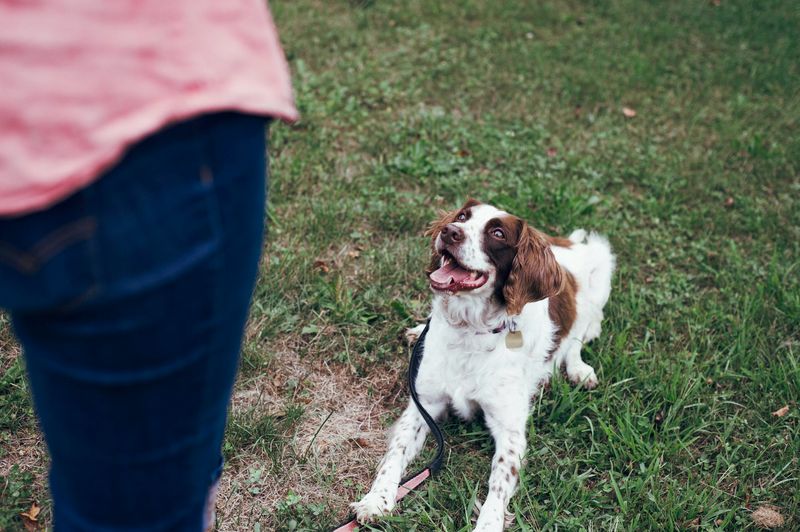
Your dog’s ears aren’t just adorable—they’re finely tuned emotional detectors! When stress raises your vocal pitch or changes your speaking rhythm, your pup notices immediately.
Many dogs respond by tilting their heads or moving closer. Some will offer submissive behaviors like belly exposure or gentle paw touches, instinctively trying to defuse tension they hear in your voice.
11. Dogs Mimicking Your Stress Responses

Ever notice your dog yawning when you’re anxious? That’s emotional contagion at work! Dogs often mirror their owners’ stress signals through sympathetic responses like excessive panting or restless movements.
Your furry friend might lick their lips more frequently or shed excessively during your stressful periods. This mirroring demonstrates their deep emotional connection to your well-being.
12. Dogs Becoming More Attached During Stressful Times
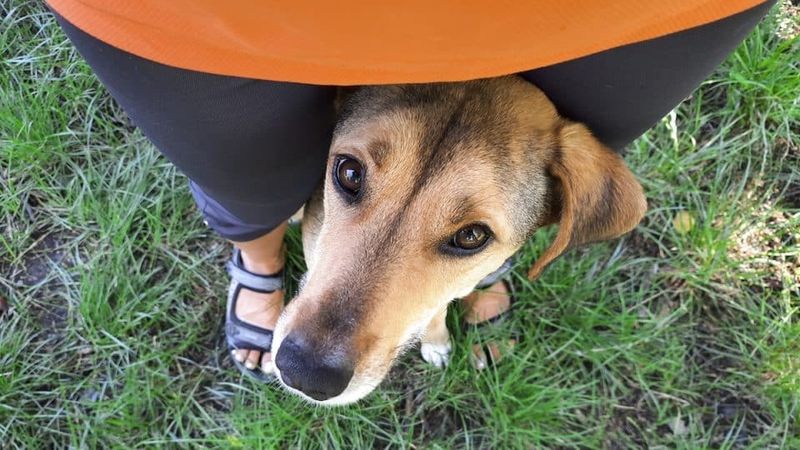
That shadow following you from room to room during tough times isn’t just your imagination. Dogs often develop temporary velcro-like attachment when they sense ongoing stress in their humans.
This clingy behavior serves a purpose—they’re monitoring your wellbeing while providing constant support. Consider it their way of being your emotional support animal without formal training!
13. Dogs Helping To Ground You
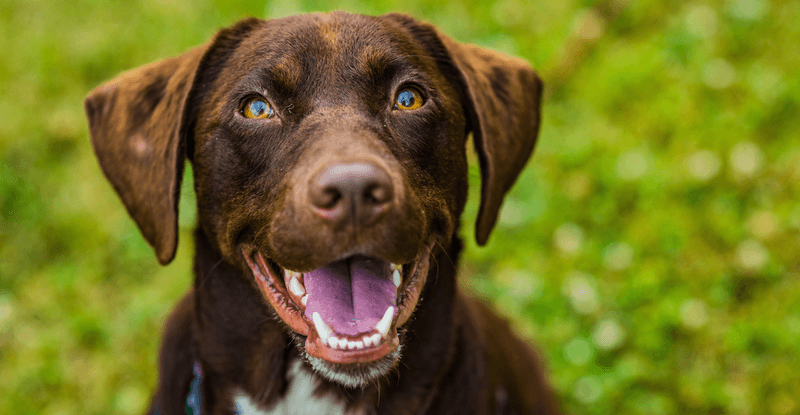
Your furry companion acts as a living anchor during emotional storms. Their consistent presence pulls you back to the present moment when anxiety tries to drag your thoughts into past regrets or future worries.
The simple act of petting your dog activates your parasympathetic nervous system, naturally counteracting stress responses. Their predictable routines provide structure when everything else feels chaotic.






